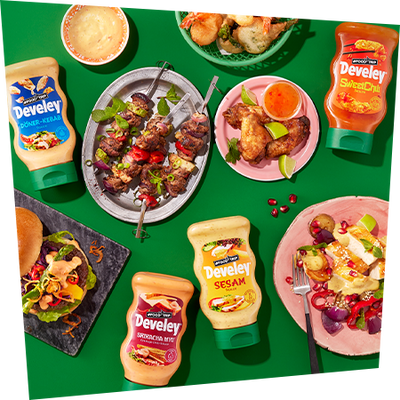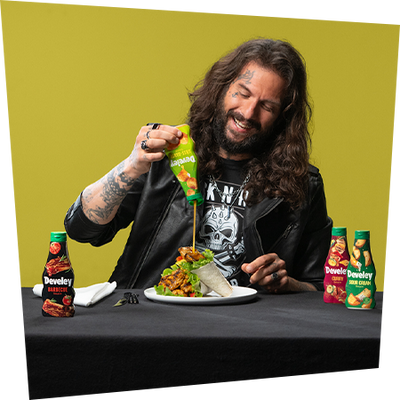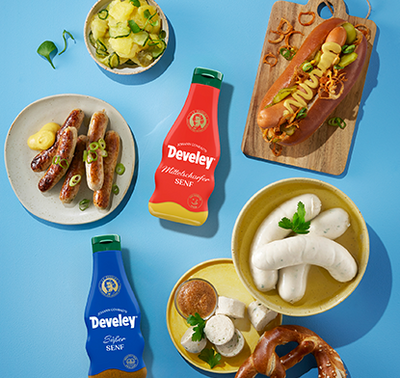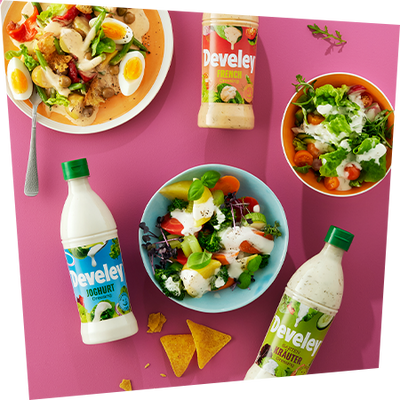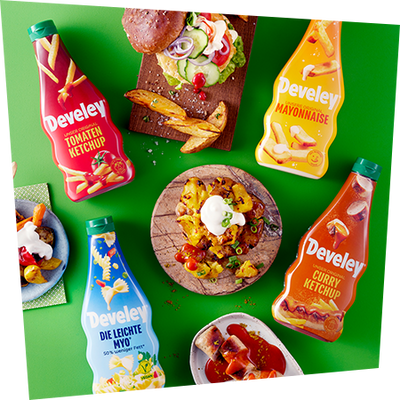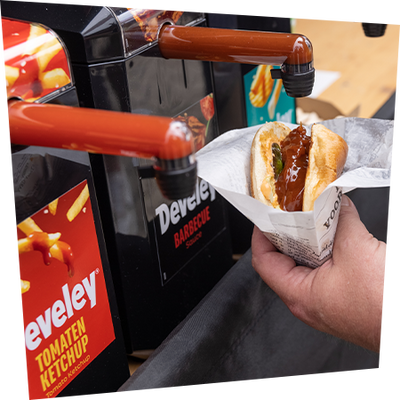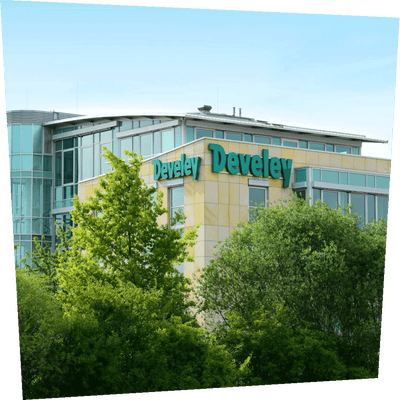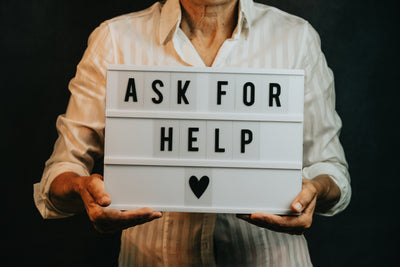SUSTAINABLY MOTIVATED
WE'RE REALLY READY!
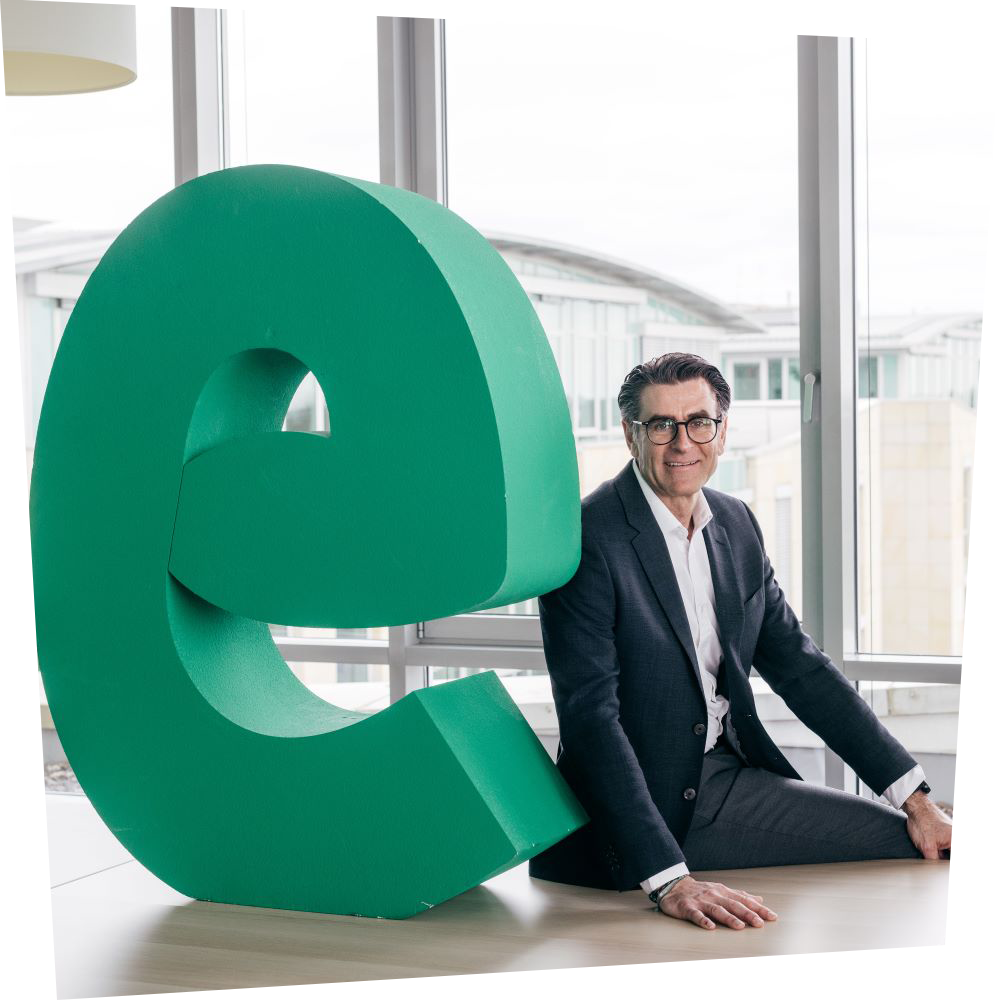
"As is so often the case in family businesses, the impetus for greater sustainability at Develey arose during discussions with the children. "I believe that family businesses think more in terms of generations than quarters. But it was through my children that I truly realized: Develey only has a future if we focus on sustainable, economical business practices. We were tackling the issue long before sustainability became an advertising promise. Today, environmental protection is part of our everyday work."
Michael Durach, Managing Director of Develey Senf & Feinkost GmbH
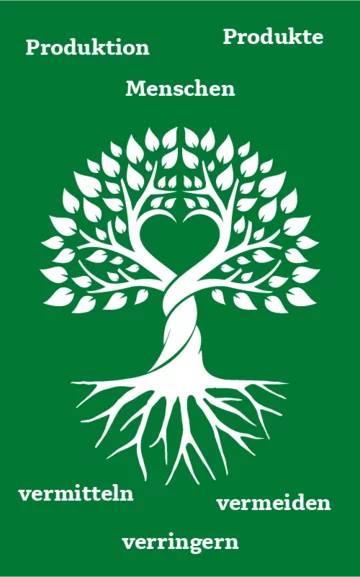
We want to pass the company on to the next generations with a clear conscience, so that future mustard and sauce fans can also fully enjoy our Develey products. That's why we prefer to invest in sustainable solutions rather than "whitewash" ourselves with green certificates at the expense of nature.
“Avoid, reduce & communicate” – This means that we avoid burdening the environment wherever possible, reduce negative impacts and communicate our learnings and successes in order to create trust and greater sustainability awareness.
We focus on what we can actually control, acting consistently and transparently in these areas. For example, we reduce packaging waste and generate our electricity from renewable sources through photovoltaic installations at various locations.
Our three areas of activity
At Develey, we build sustainability on the pillars of people, products, and production. We dedicate ourselves to this every day – always with the triad of "avoid, reduce, and communicate" in mind.
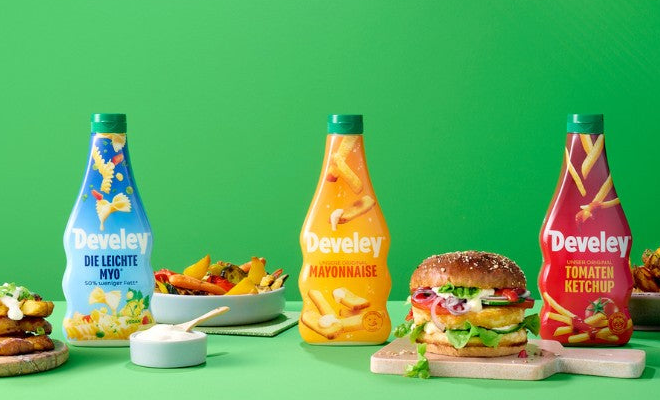
Products
Because it tastes better in the long term
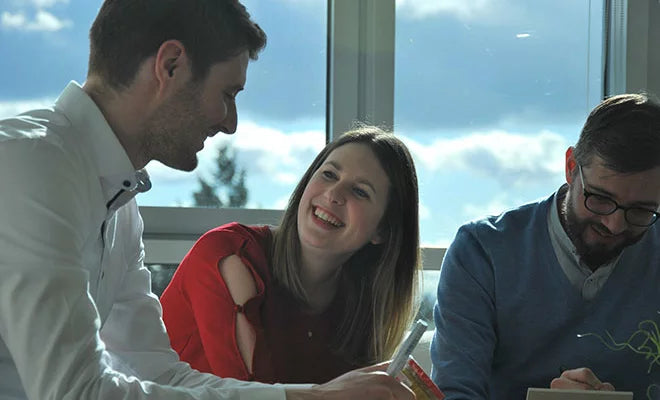
People
Sustainability is teamwork

production
All switches on green

Big steps towards a small footprint
Develey always strives to act in a climate-friendly manner. And is it working? Absolutely. Through individual measures and investments in climate-friendly technologies, we have been able to almost halve our carbon footprint at our German locations since 2011. We've achieved this, for example, with electricity from wind power or solar systems. And yes, the transition to sustainable business isn't always easy, but it's absolutely necessary.
AND WE GO ON
When it comes to sustainability, our goal is always to have a new goal. Because sustainable business is an ongoing process. Optimizing our packaging will accompany us as long as you can buy our products. Following our motto "avoid, reduce, and communicate," we will do everything we can to continually improve within our three areas of responsibility. But for that, we need your support. As a company, we have even more to say about sustainability. Take a look here !
READY TO GIVE SOME REAL CO2?
Do you have an idea about how we can improve at Develey? Let us know! We're excited!
BELIEVE WHAT YOU KNOW
We impart sustainable knowledge
FAQ
What does sustainability mean in general?
The term sustainability, or sustainable development, generally refers to meeting the needs of the present in such a way that the opportunities of future generations are not limited. "Sustainable" can also be translated as permanent, long-lasting, and environmentally friendly. It's about acting responsibly, since everything we do has an impact on our environment.
Glass vs. plastic - which is more sustainable?
It depends. Glass is highly recyclable and can be almost entirely reused to produce new glass. With PET packaging, half usually goes into new production, while the remaining 50% is further processed, for example, for the textile industry. However, plastic packaging is much lighter than glass and uses less petroleum during transport, thus emitting less CO2. The weight of glass packaging is particularly detrimental over long transport routes. Whether glass or plastic is better depends on the transport routes, but also on the product's use and the material's production. Find out how we optimize our packaging here.
When can a company call itself climate neutral?
The term "climate-neutral company" is not yet protected by trademark law. Products or companies are considered CO2- or climate-neutral if they do not cause climate-damaging emissions and/or the greenhouse gases are offset through certified offsetting projects. By investing in climate-friendly technologies, we have been able to significantly reduce our carbon footprint in Germany. Learn more about climate neutrality at Develey here.
How do you recognize greenwashing?
Greenwashing occurs when companies attempt to improve their image through false, embellished, or misleading environmental claims in order to make more money in the long run. They invest more time and money marketing themselves as environmentally friendly than actually doing anything to reduce their CO2 emissions. Detecting greenwashing is often not easy and unfortunately requires research. Here's what you should generally look out for:
- Big mouth, what's behind it? Pay attention to how and whether companies can prove terms like "green," "sustainable," or "environmentally friendly." Keyword: trustworthy seals and certificates. Our cardboard boxes, for example, are FSC-certified.
- Unimportant things are highlighted positively. In this case, a company praises a product for something that is unimportant or taken for granted. For example, an orange with a "vegan" label.
How big is my carbon footprint?
As a company, we see it as our responsibility to act and are doing a lot to reduce our carbon footprint. If you're curious, you can use the WWF CO2 calculator to calculate your own footprint and find out how much greenhouse gas is released through your activities, etc. Incidentally, the average per person in Germany is 10.8 tons.
